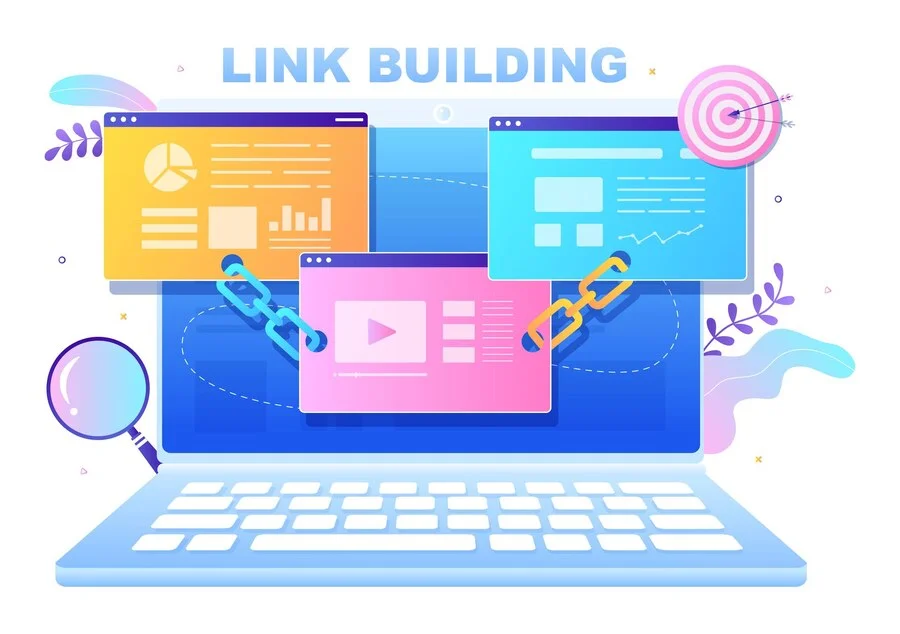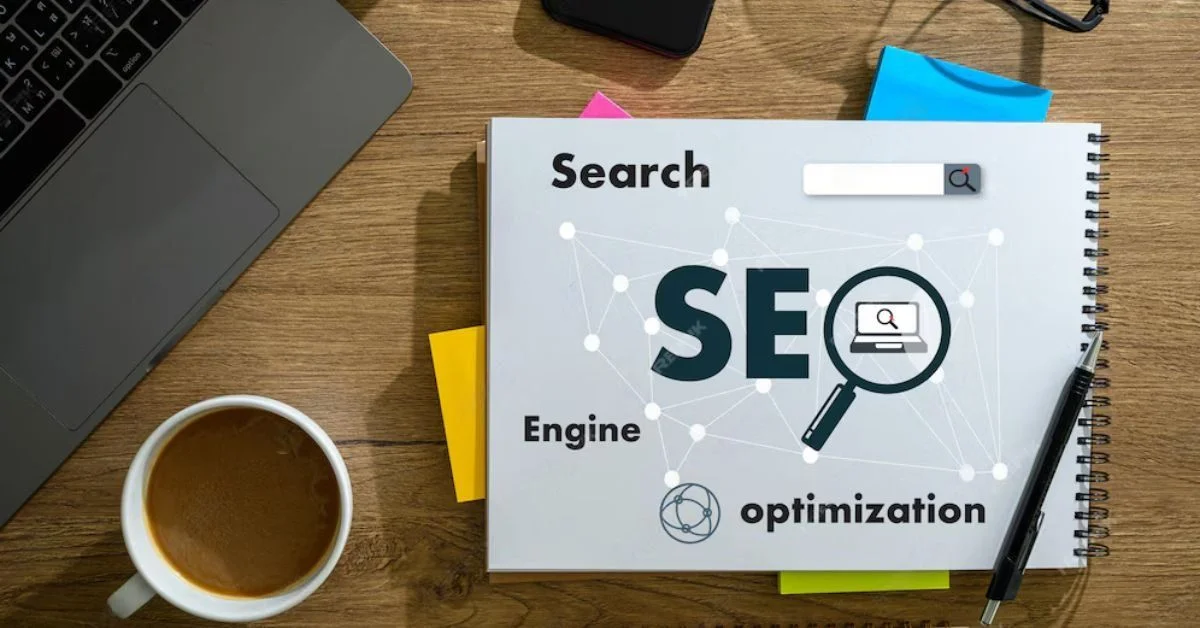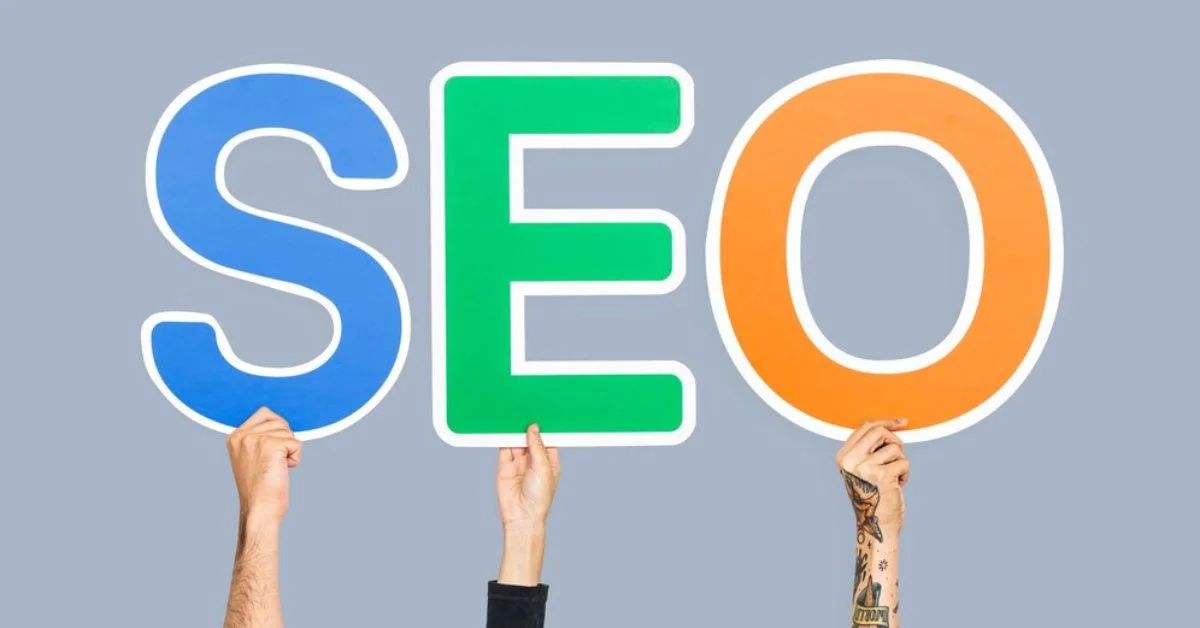SEO
Why Website Speed Matters: The Impact on User Experience and Engagement

In today’s fast-paced digital world, website speed has become a crucial factor in determining the success of online businesses. From improving user experience to boosting engagement and even influencing search engine rankings, the speed at which your website loads can have a significant impact on its performance. Let’s delve into why website speed matters and explore its profound implications for user experience and engagement.
The Importance of User Experience
User experience (UX) is at the heart of every successful website, and website speed plays a pivotal role in shaping it. Imagine clicking on a link, only to be greeted by a loading screen that seems to take forever. Frustrating, right? Slow loading times can quickly turn off visitors, leading to a poor user experience and potentially driving them away to competitors’ sites. Studies have shown that users expect websites to load within a matter of seconds, and any delay beyond that can significantly impact satisfaction levels.
The Relationship Between Website Speed and Engagement
Engagement metrics, such as bounce rates, session duration, and page views, are closely intertwined with website speed. A slow-loading website is more likely to experience higher bounce rates, as impatient visitors opt to abandon ship rather than wait around for content to load. Similarly, longer loading times can deter users from exploring multiple pages or spending more time on your site, ultimately diminishing overall engagement. By contrast, faster loading speeds can keep users engaged and encourage them to delve deeper into your content. This is why you’re encouraged to test and improve your Shopify speed score as soon as possible. It could make a huge difference.
The Role of Website Speed in Conversions
When it comes to driving conversions, every second counts. Research has shown that even a one-second delay in page load time can lead to a significant drop in conversion rates. Whether you’re selling products, generating leads, or prompting users to sign up for your services, a faster website can translate into higher conversion rates and, ultimately, increased revenue. By optimising your website speed, you’re not just enhancing user experience; you’re also maximising your chances of converting visitors into customers.
Simple Reasons Why Your Shopify SEO Could Be Failing
Most people assume that if something goes wrong with their SEO, they simply won’t see the results they desire. But you must realise that in some circumstances, things can be much worse. There could be things you’re doing that are damaging your Shopify store. Indeed, there are common SEO mistakes that many business owners are making, which see ranking drops and even potential Google fines. Let’s take a look at why your SEO could be failing.
Publishing Duplicate Content
Do some of your Shopify pages feature the same content? This doesn’t have to be something that’s deliberate. For example, perhaps you sell very similar variations of the same products. So, you’ve simply copied and pasted the descriptions for each one since they have the same features and specifications.
Know that this could be a move that wastes your time. You might be doing it to make your life easier and save time, but it could have the effect of damaging your SEO efforts. It can confuse Google, and it could even be classed as plagiarism. Unique content is the only way to go and something that allows you to incorporate various and relevant keywords.
Guessing Popular Keywords
That brings us to the topic of using keywords. Many businesses feel like they already know of the top of their head what the most popular keywords are going to be. But, the chances are that if you’re guessing, you’re using keywords that are too popular. This can make it very tricky to rank highly on Google.
Instead, know that research is crucial. You need to find relevant keywords with low competition, which allows you to boost the ranking of your Shopify site. There are plenty of useful apps you can use to find popular keywords and inspect how well they’ll do for your business.
Slow to Load
Have you ever tested your website to see how responsive it is? Know that a slow website will drive away customers. Nobody’s going to wait for your site to load. Instead, you need to test your website and optimise it to ensure it’s fast-loading and ready to offer customers all the information they need. Note that Google cares if your website is fast to load and if it is, the search engine will prioritise your site in relevant searches.
Therefore, if you’ve never tested the speed, this is something you should do. Experts can advise you on the best ways to improve the loading time and make sure customers have a good experience.
Conclusion
Website speed matters more than ever in today’s digital landscape. From enhancing user experience and engagement to boosting conversions and improving SEO performance, the benefits of a fast-loading website are undeniable. By prioritising speed optimisation and addressing any performance issues, you can create a seamless browsing experience for your visitors and set yourself up for success online.
SEO
Understanding Backlinks: A Comprehensive Guide for Enhancing Your SEO

Backlinks are fundamental to SEO success, serving as endorsements from one website to another. Recognized by search engines as votes of confidence, quality backlinks can significantly improve a site’s visibility and ranking.
What Are Backlinks?
Backlinks, also known as inbound or incoming links, occur when one website links to another. These are crucial for SEO because they signal to search engines that others vouch for your content. This endorsement can boost your site’s credibility and, ultimately, its rank in search engine results pages (SERPs).
The Importance of Quality Backlinks
Not all backlinks are created equal. The best backlinks have several key characteristics:
- Authority: Links from reputable, high-authority sites provide more value.
- Relevance: Links from sites within the same industry or niche are more beneficial.
- Dofollow Status: Dofollow links allow search engines to follow them and pass on link equity, unlike nofollow links, which do not pass on link equity.
- Anchor Text: The clickable text part of a hyperlink. Ideally, anchor text should be relevant to the linked page.
- Placement: Links placed within the main body of a webpage are generally more powerful than those in the footer or sidebar.
How to Acquire Quality Backlinks
Are you looking to Backlinks kaufen? Then you have come to the right place.
- Create Compelling Content: Produce high-quality content that addresses the needs and interests of your target audience. This includes in-depth articles, infographics, videos, and more that provide value and encourage other sites to link back to your content naturally.
- Guest Blogging: Writing articles for other relevant blogs can provide backlinks and is an effective way to reach new audiences.
- Broken Link Building: This involves finding broken links on other websites and suggesting your content as a replacement.
- Skyscraper Technique: Identify popular content with lots of backlinks, create something better, and then reach out to those who linked to the original piece.
- Engage in Community Discussions: Participate in forums and comment sections where you can provide valuable insights and link back to relevant content on your site.
Avoiding Backlink Pitfalls
- Buying Backlinks: This can lead to severe penalties from Google.
- Irrelevant Links: Links from unrelated sites may not contribute value and can sometimes harm your site’s standing.
- Over-Optimization: Excessive use of keyword-rich anchor text can look spammy and lead to penalties.
Tools and Strategies for Effective Backlink Management
- Use Tools like Ahrefs or Google Search Console: These tools can help you track your backlinks and the quality of links.
- Regular Audits: Periodically check your link profile for any low-quality or spammy links that could harm your ranking.
- Focus on Organic Growth: Encourage natural link development through networking and collaborative opportunities with authoritative sites in your industry.
Conclusion
Backlinks remain a cornerstone of successful SEO strategies. By focusing on quality over quantity, engaging in ethical link-building practices, and continuously creating valuable content, websites can improve their SEO performance significantly. Remember, a good backlink profile helps not only in enhancing your SEO but also in establishing your site as a credible and authoritative source in your industry.
SEO
Conquering the Kenyan Web: Best Practices for SEO in Nairobi

Nairobi’s digital landscape is a bustling marketplace where businesses of all sizes vie for online visibility. Search Engine Optimization in Nairobi (SEO) is the key to unlocking organic traffic and attracting potential customers through search engines like Google. However, a one-size-fits-all SEO strategy won’t suffice in the unique Kenyan market. This article explores best practices specifically tailored to help Nairobi businesses dominate local search results.
Keyword Research with a Kenyan Twist
Keyword research is the cornerstone of any successful SEO campaign. Here’s how a digital marketing agency in Nairobi can tailor its SEO services for the Nairobi market:
- Localize Your Keywords: Go beyond generic keywords and identify long-tail keywords with local relevance. Kenyans might search for “best restaurants Nairobi CBD” instead of just “best restaurants.”
- Consider Swahili Keywords: Swahili is a widely spoken language in Kenya. Incorporate Swahili keywords into your content strategy to reach a broader audience (e.g., “hoteli za kifahari Nairobi” for luxury hotels).
- Utilize Local Search Tools: Leverage Google Keyword Planner and local SEO tools to identify popular search terms with high search volume and low competition specific to Nairobi.
On-Page Optimization: Optimizing Your Website for Local Success
Once you have your keywords, optimize your website to improve search engine ranking and user experience:
- Target Keywords in Strategic Locations: Integrate relevant keywords naturally into your website’s title tags, Meta descriptions, headers (H1, H2, etc.), and throughout the content.
- Location, Location, Location: Optimize your Google My Business listing with accurate business information, high-quality photos, and positive customer reviews. Encourage satisfied clients to leave reviews to boost local SEO.
- Mobile-First Approach: A significant portion of Nairobi’s online population accesses the internet via smartphones. Ensure your website offers a seamless user experience for mobile users with fast loading speed and responsive design.
- Content is King (and Queen): Create high-quality, informative content that resonates with your local target audience. Address their specific needs and challenges, showcase local success stories, and highlight your expertise in the Kenyan market.
- Optimize Images with Local Context: Include relevant keywords in image alt tags and use high-quality visuals that reflect the Kenyan culture and local landscape.
Building Backlinks: Earning Trust in the Kenyan Online Sphere
Backlinks from reputable websites act as votes of confidence for your website in the eyes of search engines. Here’s how to build trust and secure high-quality backlinks in Nairobi:
- Collaborate with Local Businesses: Partner with complementary businesses in Nairobi for guest blogging opportunities or co-creating informative content that benefits both audiences.
- Target Local Online Publications: Reach out to Kenyan online publications, blogs, and directories relevant to your industry and explore guest blogging opportunities to earn backlinks from high-authority websites.
- Engage on Social Media: Actively participate in relevant online communities and social media groups in Nairobi. Share valuable content, engage in discussions, and build relationships with influencers who might be willing to link back to your website.
- Focus on Quality over Quantity: Prioritize earning backlinks from high-quality, relevant websites in the Kenyan online space. Avoid low-quality link farms and schemes that can negatively impact your SEO efforts.
Technical SEO: Ensuring a Smooth User Experience for All
Technical SEO ensures your website functions flawlessly and is easily crawled by search engines:
- Website Speed Optimization: Website loading speed is a crucial ranking factor. Use website speed testing tools and implement techniques to improve website speed for a smooth user experience.
- Structured Data Implementation: Utilize structured data markup to provide search engines with additional information about your website content, potentially improving search result snippets and attracting more clicks.
- Mobile Responsiveness: Ensure your website adapts and displays correctly across all devices, especially smartphones, to cater to the mobile-first user base in Nairobi.
- Regular Website Audits: Conduct regular technical SEO audits to identify any crawl errors, broken links, or technical issues that might hinder your website’s ranking.
Staying Ahead of the Curve: Embracing Local Trends and Google Updates
The SEO landscape is constantly evolving. Here’s how to stay competitive in the Nairobi market:
- Monitor Google Algorithm Updates: Stay informed about the latest Google algorithm updates and adjust your SEO strategy accordingly. Focus on white-hat SEO techniques and user experience to ensure long-term success.
- Embrace Voice Search Optimization: Voice search is becoming increasingly popular. Optimize your website content with natural language and long-tail keywords to improve your ranking for voice search queries.
- Focus on Local Events and Trends: Stay updated on local events, trends, and news.
SEO
How to Find Affordable SEO Services Without Compromising Quality

Finding cost-effective seo solutions is an important step for small businesses that want to improve their search engine optimization strategies. In this blog post, we will discuss five tips for finding quality SEO services without breaking the bank.
Look for agencies with client reviews and testimonials. Also, ask for writing samples and analyze the content they’ve created for other websites.
1. Do Your Research
Aside from assessing the SEO agency’s portfolio, you must also research the companies that they have worked with in the past. By doing so, you will be able to tell how familiar they are with your industry, niche, and target market. This will help them formulate strategies that are suited to your business’s specific needs.
Additionally, make sure to look for an affordable SEO provider that advocates transparent pricing and clear communication.
This will ensure that you are getting the best value for your money. Avoid agencies that offer extravagant promises like guaranteeing top positions on Google, as they are most likely relying on black-hat techniques that could hurt your website’s rankings. They may also use spammy tactics that will earn you a Google penalty in the long run.
2. Ask About Discounts
If you do a quick search online for “affordable SEO services,” you’ll find countless providers offering to get your site on the first page of Google for a low one-time fee. However, most of these cheap SEO services are based on unrealistic promises.
Rather than looking for the cheapest rates, look for value-added services or an agency that offers discounts for repeat business and referrals. Additionally, be wary of agencies or freelancers that require long-term contracts.
These types of contracts can be costly in the long run as they can lead to stagnant or negative SEO results over time. Instead, consider working with an SEO company or freelancer that offers performance-based pricing based on meeting concrete key performance indicators like keyword rankings and organic traffic growth.
3. Look for a Reputable Provider
When you’re searching for affordable SEO services, it’s essential to find a provider that you can trust. Look for an agency that has experience working with small businesses and understands the challenges and opportunities they face. Also, ask for testimonials and recommendations from previous clients.
Avoid cheap SEO services that claim they can guarantee a top Google ranking in a short amount of time. These companies often resort to black hat SEO tactics that can damage your website’s rankings in the long run.
It’s also important to look for a reputable SEO expert who is transparent about their process and strategies. This will help you make an informed decision and get the most bang for your buck. In addition, avoid agencies that require a long-term contract.
4. Get Quotes
The cost of SEO services varies, so it’s important to get quotes from multiple providers. This will help you determine which ones are within your budget while also ensuring that the services you’re getting are quality-oriented and offer a return on investment.
It’s also important to consider the company’s experience. Look for companies with a proven track record of success and an extensive portfolio of clients. Also, ask about their client retention rate and whether their specialists are experienced in a variety of SEO tasks.
Lastly, look for affordable SEO services that prioritize small and startup businesses. JetRank offers affordable pricing while also providing high-quality results. Their team is dedicated to helping their clients succeed online and they’re always willing to go the extra mile to ensure a positive customer experience.
5. Stick to Your Budget
When evaluating potential affordable SEO service providers, ask about their past work and specific examples in your industry. A reputable agency will understand the nuances of your business and its goals. They will also have an in-depth understanding of your industry and competitors.
Cheaper services may use generic tactics that will never achieve real results for your business. Worse yet, they may rely on black hat techniques that could leave you facing severe penalties down the road. You should also look for a company that provides transparent reporting and does not hide behind custom dashboards. If you are unsure about a company’s reporting, ask them to provide you with a sample of their Google Analytics report. This will give you a clear picture of their performance and effectiveness.

 TECHNOLOGY4 months ago
TECHNOLOGY4 months agoBlog Arcy Art: Where Architecture Meets Art

 ENTERTAINMENT2 weeks ago
ENTERTAINMENT2 weeks agoExploring the Kristen Archives: A Treasure Trove of Erotica and More

 LIFESTYLE4 months ago
LIFESTYLE4 months agoThe Disciplinary Wives Club: Spanking for Love, Not Punishment

 LIFESTYLE2 weeks ago
LIFESTYLE2 weeks agoWho Is Sandra Orlow?

 GENERAL3 days ago
GENERAL3 days ago5 Factors That Affect Tattoo Removal Success

 ENTERTAINMENT8 months ago
ENTERTAINMENT8 months agoYuppow: Your Free Source for Movies and TV Shows

 ENTERTAINMENT1 week ago
ENTERTAINMENT1 week agoKiss KH: The Streaming Platform Redefining Digital Engagement and Cultural Currents

 HOME IMPROVEMENT5 days ago
HOME IMPROVEMENT5 days agoGet Your Grout to Gleam With These Easy-To-Follow Tips












